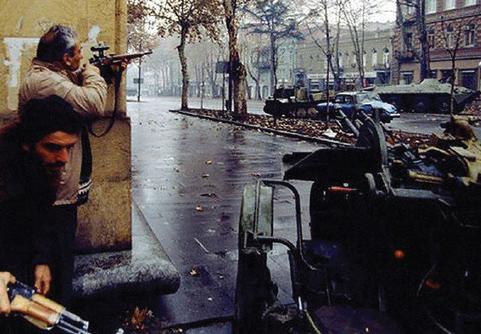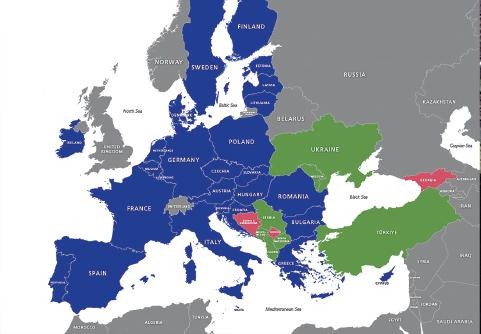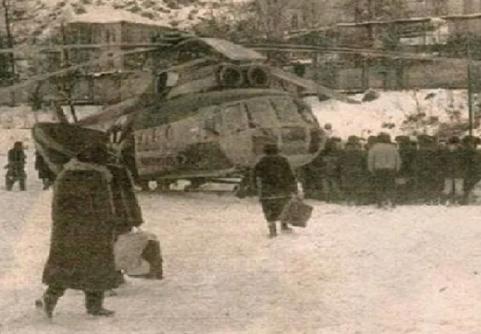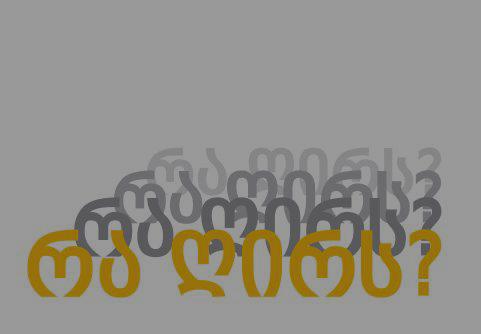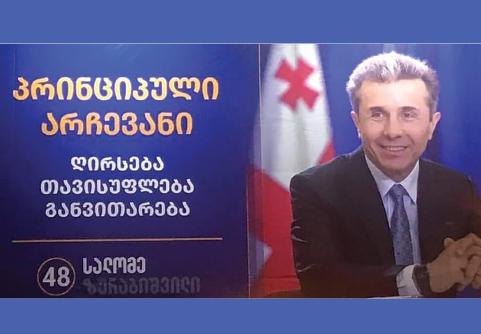Authors : Gia Japaridze, Irina Gurgenashvili


Russia's full-scale military aggression against Ukraine that began in February 2022 virtually shattered the existing order in the international system. Its narrow aim was to deprive Ukraine of its independence and completely occupy it, while the broader aim was to establish spheres of influence and restore the Russian Empire to its former borders. Against this background, the concept of neutrality, which was already dying out in international relations, proved to be an even more dysfunctional and utopian reality. Moreover, the very fragile position that the self-proclaimed neutrality of a state, not shared by others, would be a kind of international guarantee for countries – especially the weak and vulnerable ones – has been severely challenged.
Even Switzerland, whose neutrality dates back centuries and is recognized by almost every country in the world, has issued a statement about reconsidering its position. According to a spokesman for the Swiss Ministry of Defense, given the force majeure events of 2022, Switzerland could introduce clarifications to its existing neutrality and, among other changes, actively participate in joint NATO exercises and the replenishment of weapons arsenals. Neutral Finland and Sweden have decided to join NATO. These cases, individually and in combination, as well as the past experiences of other states, including Moldova, Ukraine and Georgia, convince us that, given the current developments in the modern international system and especially the revisionist aspirations of the Russian Federation, the attempt to establish real neutrality would be an unattainable and dangerous prospect.
Instead of drawing a good lesson from Georgian history and putting an end to the propaganda and illusions of and calls for neutrality, certain actors and circles associated with the Russian Federation do stop calls to “not to annoy Russia” and to join the forces of the aggressor, further straining a society taken by fear of war and by government rhetoric. Declaring neutrality is not a solution, unilateral neutrality has failed at different stages of history to protect Georgia, Moldova, Hungary, etc. The list of failed attempts to put this concept into practice is a very long one indeed.
And in cases where neutrality “works”, the other country fulfils special conditions and favorable circumstances, while for Georgia there are neither conditions nor favorable circumstances for this. Thus, in the current situation and in the international order in which we live today, even thinking about neutrality implies, at the very least, an inability to perceive and understand the situation, the price of which is very high: To be left alone in the face of a historical enemy, without allies. Georgia does not have, and never has had, the resources and capabilities to conduct an independent foreign policy.
Neutrality is the international legal status of a state when a state does not intervene in ongoing conflicts in the international system and in hostilities between other countries. This position is recognized and shared by the warring parties. Neutrality obliges a country not to enter into international security alliances and to maintain a permanent and continuous neutral attitude towards the parties of the conflict. In the eyes of the liberal order, the neutral state is an agent of world peace and “alleviates human suffering” in times of war. It should be emphasized that neutrality cannot be established if it is not recognized by the warring parties. For example, in 1956, after the anti-Soviet uprising, Hungary declared that it wanted to become a neutral country, but none of the leaders of the Cold War camp – neither the Soviet Union nor the United States – shared this idea, so Hungary's wish remained a wish and not just a foreign policy aspiration, and even the independence of this country, which was under the influence of the Soviet camp, became questionable. Soon after this declaration, the Soviet forces drowned the Hungarian anti-communist movement in blood and re-established the Soviet regime in the country.
Neutrality is the product of a collective agreement that is broadly recognized by all countries, and at least other great powers emerge to become guarantors of that neutrality. For example, the London Conference and Agreement of 1839 recognized Belgium as a sovereign state and granted it permanent neutrality, with England as its guarantor. In 1914, Germany violated Belgium's neutrality and invaded its territory, and England, as guarantor of Belgium's neutrality, declared war on Germany. We should also remember the neutrality of Austria, which is an example of forced neutrality. In 1955, under pressure from the Soviet Union, Austria was forced to declare neutrality as one of the main conditions for the Soviet occupation troops to leave Austrian territory.
Finland also has a difficult historical experience of neutrality. Neutrality, declared in 1917 under pressure from imperial Russia, ended with the Winter War between the USSR and Finland in 1939, but Finland was forced to declare neutrality again in 1948. The Soviet Union imposed such harsh conditions on Finland that, among other things, it was forced to refuse to participate in the European Recovery Programme (the Marshall Plan). Russia made no distinction between economic and military cooperation. After the collapse of the Soviet Union, Finland joined the European Union but has previously expressed no desire to join NATO. This year, however, the renewed Russian aggression in Ukraine was a wake-up call for Finland, which abandoned its neutrality and began the process of joining. This was not the case for Sweden, which had a traditional rather than imposed neutrality, but events in Ukraine and irreversible threats from Russia forced it, like Finland, to take the decision to join NATO.
The best practical expression of permanent neutrality is the Swiss Confederation. However, Switzerland is the so-called “outlier” in neutrality studies; the country's “dizzying success” in establishing neutrality, which was conditioned by many factors, prevents the so-called newly neutral countries from recognizing the complexity of neutrality. In addition to its favorable geographical location, the success of Swiss neutrality was due to its long tradition, the right timing, the consolidated agreement of other countries, and the ability to defend itself. Switzerland's neutrality was endorsed at the Congress of Vienna in 1815, when Europe, ravaged by Napoleon's wars of conquest, was building a new European security architecture. At the Congress, all states agreed that Switzerland should become a kind of buffer zone on the European continent, acting as a meeting point for all sides. Before the Congress, however, Switzerland had already had a two-century tradition of neutrality. Since the 16th century, it had been an integral part of Swiss identity: the country did not take part in conflicts, did not wage wars of conquest, and had no disputed territories. As for the ability to stand up for itself, the Swiss defense system is deeply rooted in their way of life. In both the First and Second World Wars, Switzerland mobilized its defense forces at short notice (an army of almost half a million men) and was ready to defend its neutrality on its own during both wars. As a result, it avoided attack and received even greater guarantees of neutrality in the future.
The issue of Moldova's neutrality should serve as an example to Georgia. In 1994, the state of Moldova declared permanent neutrality. The most dangerous and immediate threat to Moldova's security and sovereignty was (and still is) the self-proclaimed Transnistrian Republic and the armed forces of the Russian Federation deployed on Moldovan territory. The Chisinau government's attempt to use its neutral status to "force" Moscow to withdraw its occupying troops and thus accelerate the process of political settlement of the dispute with the Tiraspol administration has failed. A logical purpose of declaring a state's permanent neutrality could be to avoid being involved in future military conflicts and not to have troops of a foreign state stationed on its territory, but in practice there has been and is no precedent for this to have a retroactive effect; therefore, the use of neutrality to withdraw troops and restore sovereignty over the entire territory on the part of Moldova was a move doomed to failure.
For historical reference, Georgia declared itself a neutral state in 1918 with the Act of Independence, although this did not prevent the Soviet Union from occupying the country in 1921 and annexing it in 1922. Here we should remember the May 7, 1920 agreement with Soviet Russia. According to Article 5 of this agreement, Georgia declared its de facto non-aligned status and promised Russia not to station troops near its territory. However, the terms stipulated in the agreement did not help stop Russia's aggressive ambitions, and Georgia's independence was destroyed.
When discussing the Constitution of the First Republic of Georgia, and in particular when debating the article on neutrality, the leaders of the First Republic stressed that the declaration of neutrality in itself meant nothing if they could not defend this policy themselves and at the same time obtain international recognition. “In order to establish neutrality, it is not sufficient in international law for a State wishing to be neutral to declare, ‘I am neutral’… A unilaterally declared permanent neutrality means little if it is not also recognized by other states... A neutral state, and in particular the Republic of Georgia, shall and must have some form of military force for its defense... A neutral state has the right to defend its neutrality by military force if any aggressor dares to harm it..." – reads the amendment to the first chapter of the Georgian Constitution. Although the neutrality clause in the Constitution of the First Republic was absolutely correct, it could not be put into practice. The founders knew a lot in theory, but they had no way of seeing in practice how vulnerable and incompatible neutrality was with Russian ambitions.
In conclusion, the citizens of Georgia should ask themselves a simple question – if Georgia's neutrality did not prevent the Russian Federation from annexing the country once, why would it prevent it today? Given this, and regardless of Russia's defeat in Ukraine, can Georgia afford the luxury of slowing down its movement towards the European Union and NATO?

